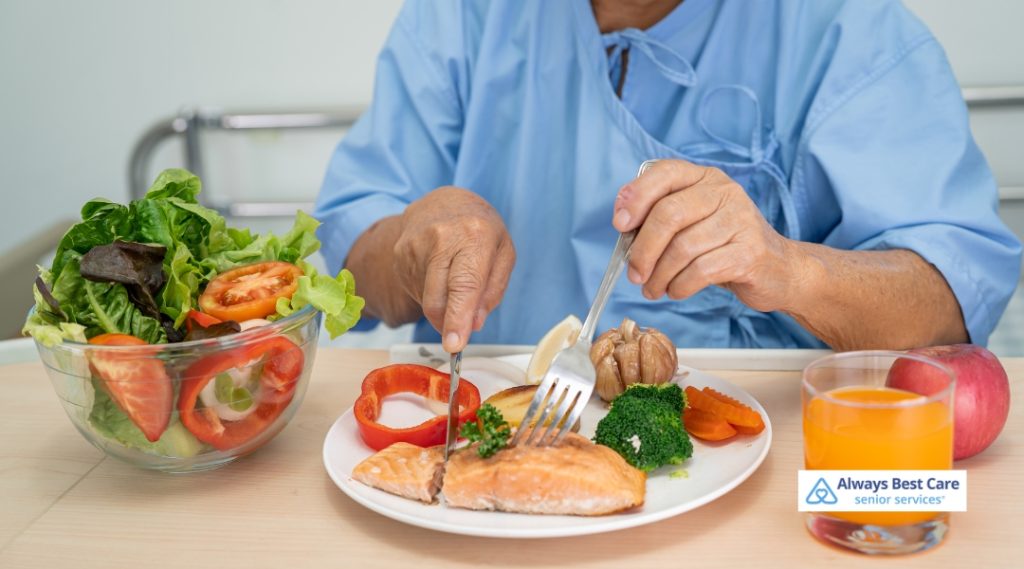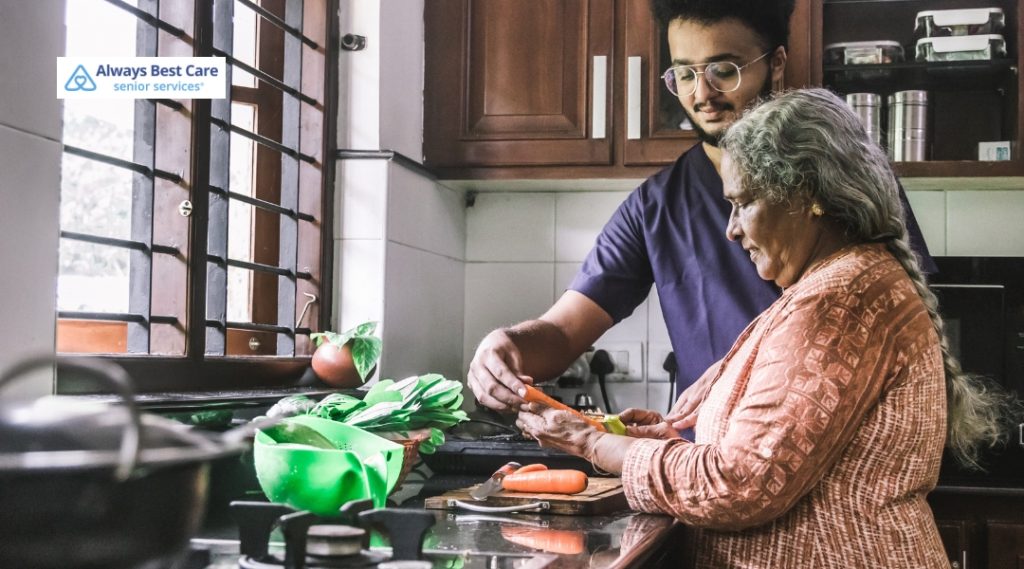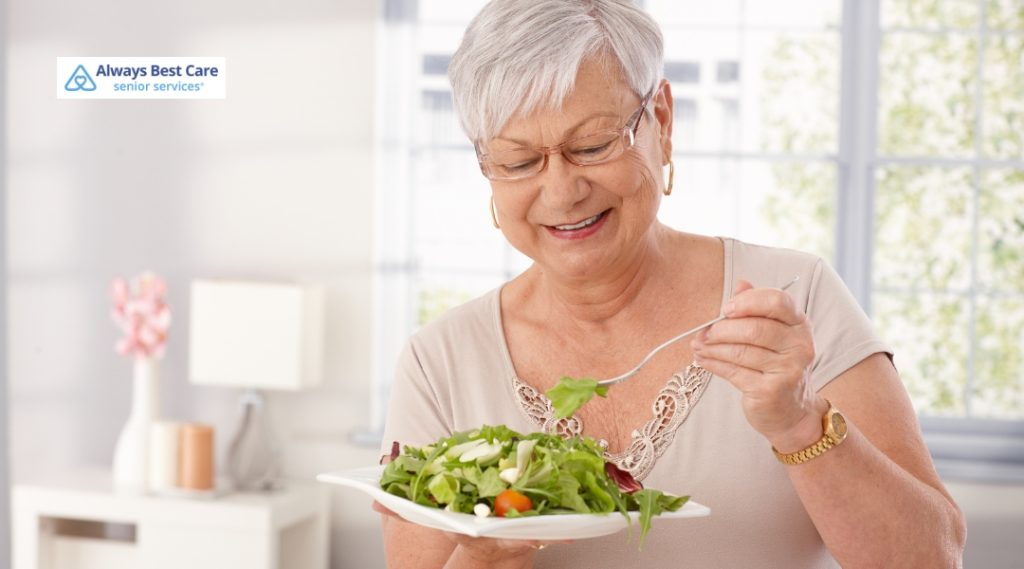Nourishing the Golden Years: Boosting Appetite in Seniors

As we age, maintaining a healthy appetite can become a challenge.
Many seniors face a decline in their desire to eat due to various factors such as changes in taste and smell, medication side effects, dental issues, or even feelings of loneliness. This decrease in appetite can lead to malnutrition, weight loss, and reduced energy levels, ultimately affecting their health and independence.
In Dallas, TX, we’re committed to helping seniors enjoy their meals again and ensuring they get the nutrients they need.
Table of Contents
Understanding the Underlying Causes
Before tackling the issue of low appetite, it’s crucial to understand what might be causing it.
Common reasons include:
- Medication side effects: Nausea or dry mouth from certain medications.
- Dental problems: Ill-fitting dentures or difficulty chewing.
- Chewing and swallowing issues: Difficulty consuming certain foods.
- Emotional factors: Depression, isolation, or grief.
- Loss of taste or smell: Making food less appealing.
To address these issues, it’s a good idea to consult with your loved one’s doctor to rule out any medical causes. By tackling these underlying problems, you can help improve their relationship with food.

Making Meals More Appealing
Seniors are more likely to eat when food looks and smells good. Here are some tips to make meals more appealing:
- Visual appeal: Use colorful fruits and vegetables, and serve food on attractive plates.
- Flavor boost: Add herbs and spices to enhance flavor without excess salt.
- Ambiance: Create a pleasant atmosphere with soft lighting and background music.
Serving Smaller Meals
Large meals can be overwhelming for seniors with smaller appetites. Instead, try:
- Smaller portions: Offer three small meals and two to three snacks throughout the day.
- Nutrient-dense snacks: Include yogurt, smoothies, cheese, or nuts to provide essential calories and nutrients.

Sharing Meals
Eating is often a social activity. Sharing meals with your loved one can make a big difference.
If you can’t be there regularly, consider arranging for other family members, friends, or caregivers to join them.
Making Eating Easier
If chewing or swallowing is difficult, focus on:
- Soft foods: Scrambled eggs, mashed potatoes, oatmeal, or soups.
- Proper denture fit: Ensure dentures fit well and address any mouth pain.
- Texture adjustments: Adjust food textures or temperatures for comfort.

Planning Ahead and Getting Creative
Meal planning can reduce stress and encourage variety.
Involve your loved one in choosing meals and groceries to keep them engaged.
Preparing meals ahead of time and trying new recipes can also help renew their interest in eating.
How We Can Help
At Always Best Care of Dallas, we understand that supporting a senior’s nutrition doesn’t have to be a solo task.
Our experienced caregivers can assist with meal planning, grocery shopping, and preparing nutritious meals tailored to your loved one’s preferences and dietary needs.
Whether it’s encouraging hydration, adjusting meals for swallowing difficulties, or simply providing companionship during mealtime, we’re here to make eating a positive experience again.

FAQ
Q: What are the common reasons for decreased appetite in seniors?
A: Common reasons include medication side effects, dental issues, difficulty chewing or swallowing, emotional factors, and loss of taste or smell.
Q: How can I make meals more appealing for seniors?
A: Use colorful foods, enhance flavors with herbs and spices, and create a pleasant atmosphere with soft lighting and music.
Q: What kind of snacks are best for seniors with small appetites?
A: Nutrient-dense snacks like yogurt, smoothies, cheese, or nuts are ideal for providing essential calories and nutrients.
Schedule Your Free Consultation With Always Best Care of Dallas!
If your aging loved one is struggling with appetite loss or needs support with daily routines, contact Always Best Care of Dallas at (972) 739-8886 to schedule a care consultation. Our compassionate caregivers are here to support health, wellness, and independence—starting right at the kitchen table.





